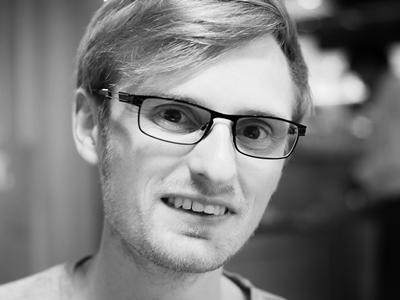Outstanding Southampton thesis updates ‘master equation’ of Nuclear Magnetic Resonance

Postgraduate researcher Christian Bengs has been awarded the international Raymond Andrew Prize for a new form of a ‘master equation’ that connects magnetic resonance to the field of open quantum systems.
The University of Southampton chemistry student has driven forward theoretical work for hyperpolarised experiments that will help enhance the performance of Nuclear Magnetic Resonance (NMR) techniques.
Christian was selected for the honour by the prestigious AMPERE (Atomes et Molécules Par Études Radio-Électriques) Group and presented the prize in an online ceremony at the recent EUROMAR (European Magnetic Resonance) conference.
NMR is a versatile technique that is influencing many areas of modern science, including structural biology, kinetic analysis, fluid dynamics, metabolomics and even quantum computing.
Modern NMR techniques however face some major drawbacks, in particular its low sensitivity. This typically forces scientists to average over a large number of spectra in order to achieve good resolution and comes at the cost of increased experimental time.
To tackle this issue researchers around the globe are combining a technique known as hyperpolarisation with standard NMR protocols. This can typically dramatically enhance signals by creating so-called spin systems far from thermal equilibrium.
Christian’s PhD at Southampton investigated how a hyperpolarised spin system relaxes back over time to its thermal equilibrium state. The research identified that the long-established NMR master equation is incapable of describing this behaviour and proposed a modernised formalism.
“I’m delighted to receive this year’s Raymond Andrew Prize and to be associated with such an incredible list of predecessors,” Christian says. “This is particularly special as it shows that within the NMR community there is still great appreciation for fundamental research and theoretical work.
“I would like to thank my supervisors Professor Malcolm Levitt and Dr Giuseppe Pileio who have always been open for questions and discussions, and encouraged me to explore many of the more exotic aspects of NMR. I would also like to thank Dr Benno Meier, Dr Karel Kouřil, and Dr Hana Kouřilova who did an unbelievable job in constructing the setup for the experiments and performing the subsequent measurements. I hope that my proposed formalism may be of help in future developments of novel hyperpolarisation techniques.”
The award-winning research worked in collaboration with Professor Richard Whitby’s group on fullerene encapsulated water molecules (H2O@C60). Hyperpolarised H2O@C60 displays a peculiar effect known as spin isomer conversion, which had previously never been observed at room temperatures. These properties make the system ideally suited to test the boundaries of NMR relaxation theory.
The Raymond Andrew Prize recognises the best international PhD thesis in the field of magnetic resonance. The prize is named after UK scientist Raymond Andrew, who did seminal work on magnetic resonance in the 20th Century, including the invention of magic-angle spinning, a technique which underpins modern solid-state NMR.